Filter by

The Th2 Type Immune Response in Health and Disease From Host Defense and All…
The type 2 immune response that develops during infectious disease has undergone major paradigm shifts in the last several years as new cell types and pathways have been identified. It is now clear that the type 2 immune response, characterized by elevations in specific cytokines, including IL-4, IL-5 and IL-13, is associated with helminth infections in both humans and mice. This response is co…
- Edition
- -
- ISBN/ISSN
- 978-1-4939-2911-5
- Collation
- -
- Series Title
- -
- Call Number
- -
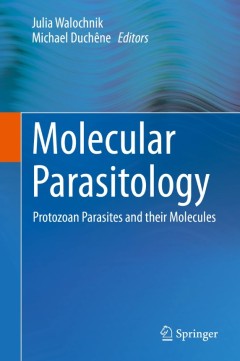
Molecular Parasitology
In the past years, genome projects for numerous human parasites have been completed and now allow first in depth comparisons and evolutionary conclusions. The genomes of parasites reflect the coevolution with their host, metabolic capacities depending on their respective habitat in the host. Gut parasites usually have an anaerobic metabolism, while blood parasites have an aerobic metabolism, in…
- Edition
- 1
- ISBN/ISSN
- 978-3-7091-1415-5
- Collation
- IX, 547
- Series Title
- -
- Call Number
- -
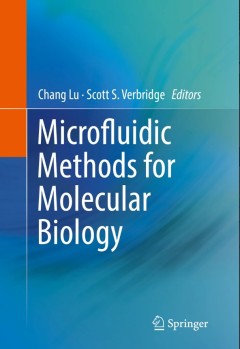
Microfluidic Methods for Molecular Biology
This book covers the state-of-the-art research on molecular biology assays and molecular techniques enabled or enhanced by microfluidic platforms. Topics covered include microfluidic methods for cellular separations and single cell studies, droplet-based approaches to study protein expression and forensics, and microfluidic in situ hybridization for RNA analysis. Key molecular biology studies u…
- Edition
- 1
- ISBN/ISSN
- 978-3-319-30017-7
- Collation
- XII, 376
- Series Title
- -
- Call Number
- -
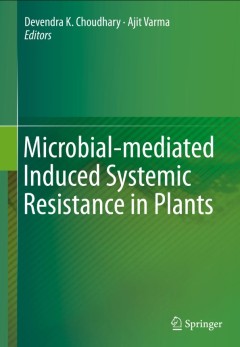
Microbial-mediated Induced Systemic Resistance in Plants
With a focus on food safety, this book highlights the importance of microbes in sustainable agriculture. Plants, sessile organisms that are considered as primary producers in the ecosystem and communicate with above- and below-ground communities that consist of microbes, insects, and other vertebrate and invertebrate animals, are subjected to various kinds of stress. Broadly speaking, these can…
- Edition
- 1
- ISBN/ISSN
- 978-981-10-0387-5
- Collation
- X, 226
- Series Title
- -
- Call Number
- -
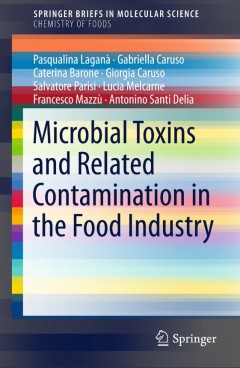
Microbial Toxins and Related Contamination in the Food Industry
This Brief concerns the chemical risk in food products from the viewpoint of microbiology. The “Hazard Analysis and Critical Control Point” (HACCP) approach, which is applied for this purpose, is dedicated to the study and the analysis of all possible dangers by food consumptions and the related countermeasures with the aim of protecting the health of consumers. This difficult objective is …
- Edition
- -
- ISBN/ISSN
- 978-3-319-20558-8
- Collation
- VI, 101
- Series Title
- SpringerBriefs in Molecular Science
- Call Number
- -
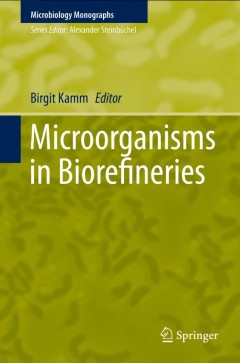
Microorganisms in Biorefineries
The book describes how plant biomass can be used as renewable feedstock for producing and further processing various products. Particular attention is given to microbial processes both for the digestion of biomass and the synthesis of platform chemicals, biofuels and secondary products. Topics covered include: new metabolic pathways of microbes living on green plants and in silage; using ligno…
- Edition
- 1
- ISBN/ISSN
- 978-3-662-45208-0
- Collation
- X, 369
- Series Title
- Microbiology Monographs
- Call Number
- -

The Root Canal Biofilm
This book presents the current state of research on the basic scientific aspects of root canal biofilm biology within a clinically applicable context. Root canal biofilms are complex polymicrobial structures adhering to the root canal surface that are formed by microorganisms invading the pulpal space of teeth, and are associated with persistent root canal infections. Concerted efforts to study…
- Edition
- -
- ISBN/ISSN
- 978-3-662-47415-0
- Collation
- -
- Series Title
- -
- Call Number
- -

Microbial Endocrinology: Interkingdom Signaling in Infectious Disease and Health
Prof. Mark Lyte, Ph.D., M.S., MT(ASCP) is a Professor in the Department of Veterinary Microbiology and Preventive Medicine, College of Veterinary Medicine, Iowa State University. Prof. Lyte conducted experiments in 1991 that subsequently led him shortly thereafter to propose and found the field of microbial endocrinology. In addition to having served on scientific review panels for the National…
- Edition
- 1
- ISBN/ISSN
- 978-3-319-20214-3
- Collation
- XIII, 374
- Series Title
- Advances in Experimental Medicine and Biology
- Call Number
- -
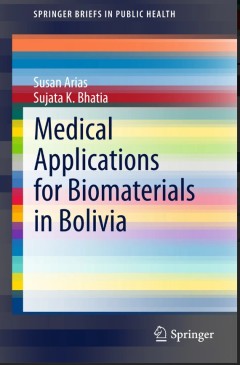
Medical Applications for Biomaterials in Bolivia
This book investigates the potential medical benefits natural biomaterials can offer in developing countries by analyzing the case of Bolivia. The book explores the medical and health related applications of Bolivian commodities: quinoa, barley, sugarcane, corn, sorghum and sunflower seeds. This book helps readers better understand some of the key health concerns facing countries like Bolivia a…
- Edition
- 1
- ISBN/ISSN
- 978-3-319-16774-9
- Collation
- X, 62
- Series Title
- SpringerBriefs in Public Health
- Call Number
- -
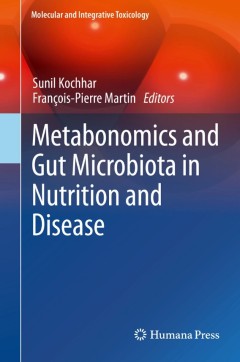
Metabonomics and Gut Microbiota in Nutrition and Disease
This book provides a comprehensive overview of metabonomics and gut microbiota research from molecular analysis to population-based global health considerations. The topics include the discussion of the applications in relation to metabonomics and gut microbiota in nutritional research, in health and disease and a review of future therapeutical, nutraceutical and clinical applications. It also …
- Edition
- 1
- ISBN/ISSN
- 978-1-4471-6538-5
- Collation
- XVI, 375
- Series Title
- Molecular and Integrative Toxicology
- Call Number
- -
 Computer Science, Information & General Works
Computer Science, Information & General Works  Philosophy & Psychology
Philosophy & Psychology  Religion
Religion  Social Sciences
Social Sciences  Language
Language  Pure Science
Pure Science  Applied Sciences
Applied Sciences  Art & Recreation
Art & Recreation  Literature
Literature  History & Geography
History & Geography